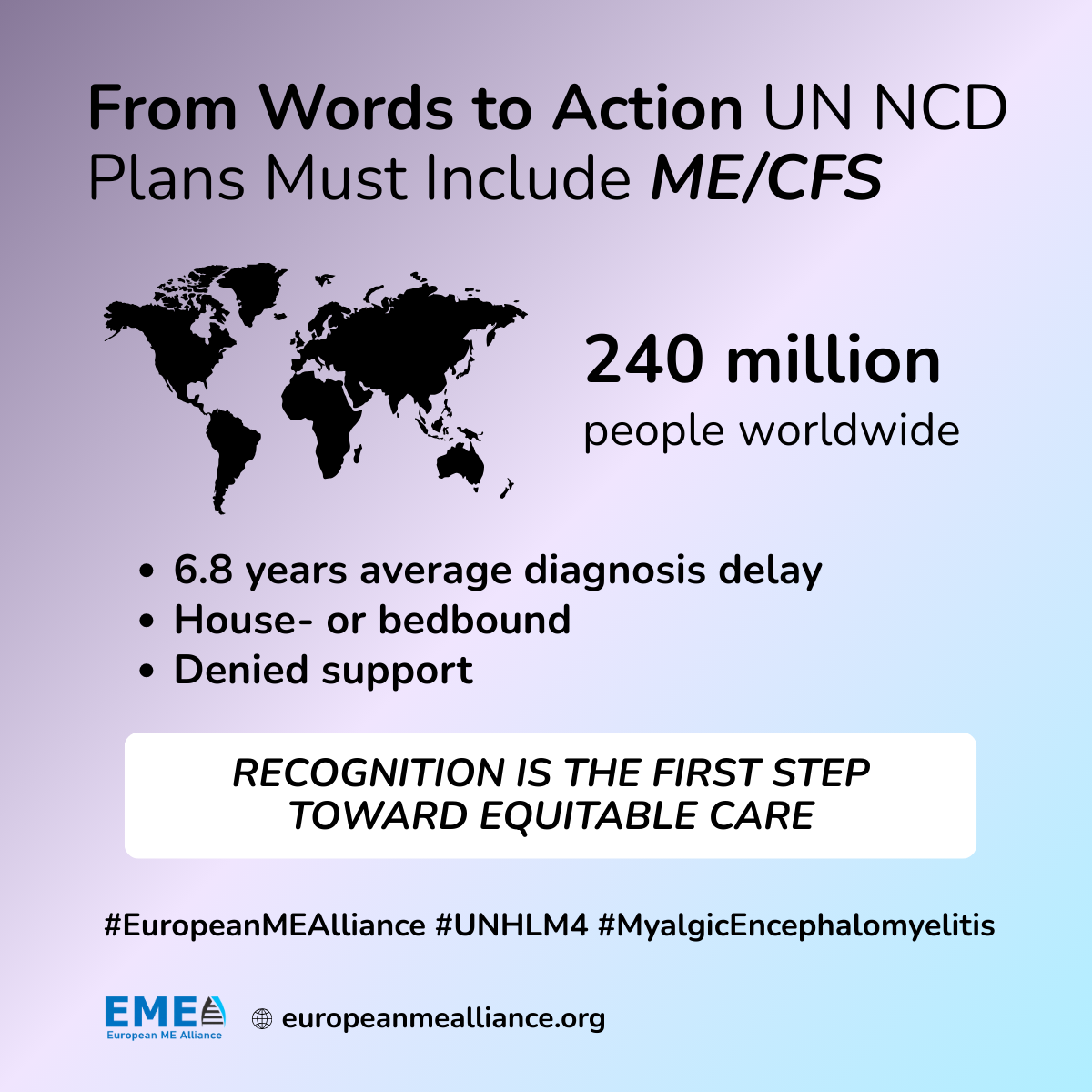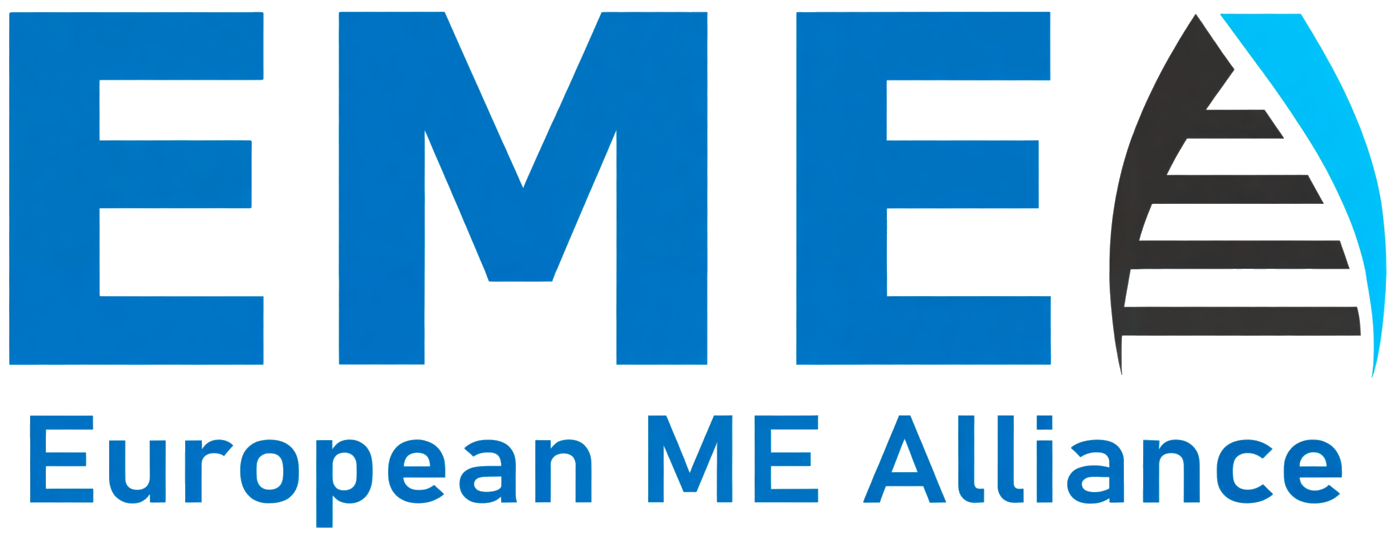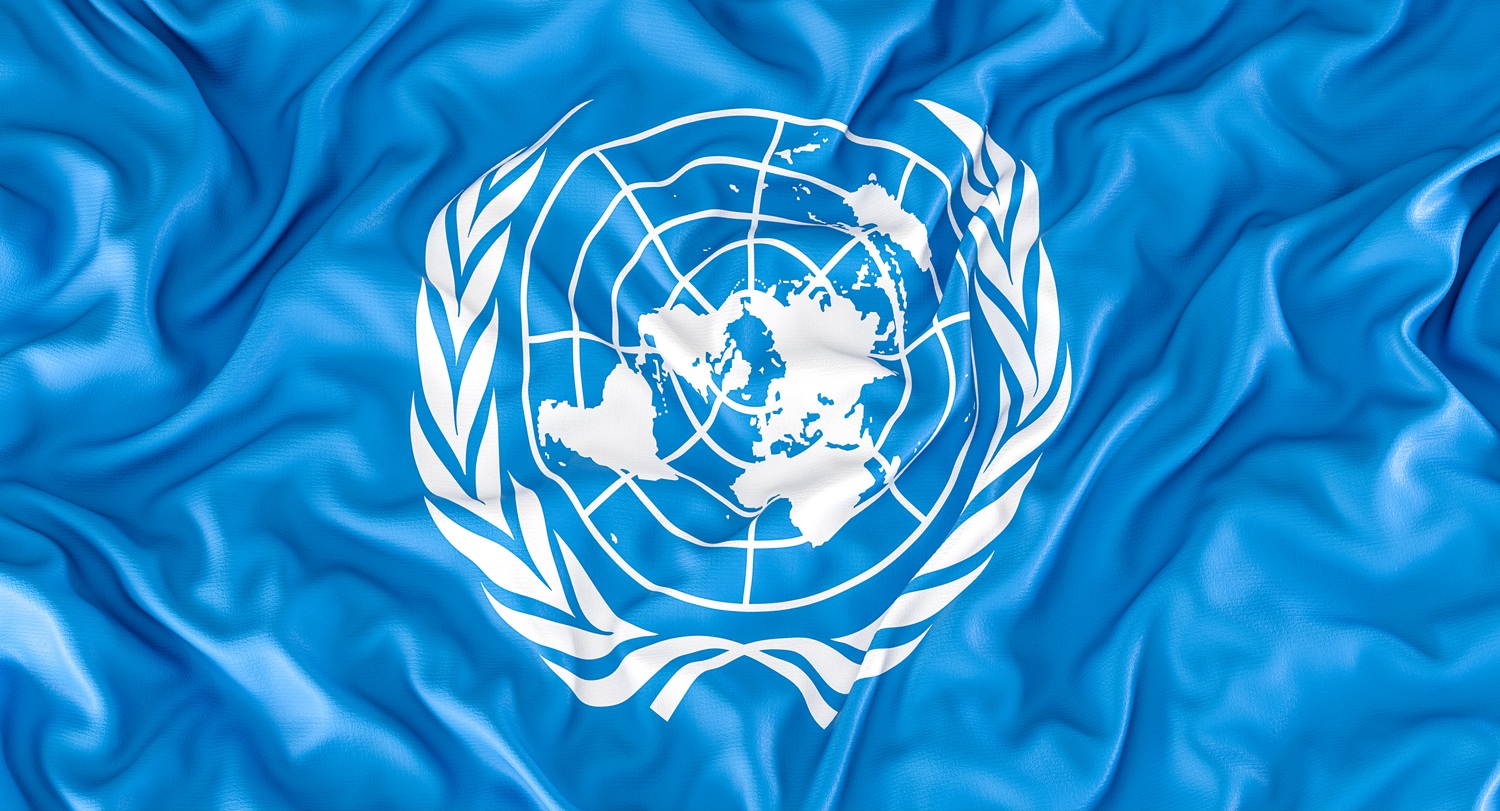EMEA Calls for the Inclusion of Myalgic Encephalomyelitis in the Implementation of the Political Declaration of the 4th UN High-Level Meeting on Noncommunicable Diseases
The 4th United Nations High-Level Meeting on Noncommunicable Diseases (UNHL4) presents an important milestone for global health policy by aligning with the overarching goal of accelerating progress in the prevention, treatment, and care of noncommunicable diseases (NCDs) worldwide.
As Member States prepare to adopt the Political Declaration on 25 September 2025, the meeting offers a unique opportunity to reinforce commitments to universal health coverage, multisectoral action, and the elimination of health inequities - and, importantly, to include myalgic encephalomyelitis (ME).
ME - a serious,
neglected physical NCD affecting an estimated 240 million people - deserves urgent global attention
having remains woefully under-recognised for far too long.
Despite its severe and disabling nature, ME is often hidden under vague diagnoses, misrepresentation, or lack of
awareness within both national health systems and global health frameworks.
We continue our earlier calls to
the European Union, which urged comprehensive action at a regional level to address the neglect of ME in public
health and policy.
Now, EMEA is addressing the UN and calling for a similar sense of urgency on a global scale, urging the inclusion of ME in the implementation of UNHL4 Political Declaration as an integral part of efforts to tackle the growing burden of NCDs.
The objectives of UNHL4 focus on reducing risk factors, strengthening health systems, and ensuring
universal health coverage, and these directly align with the urgent needs of ME patients.
Despite widespread underfunding,
lack of recognition, continual stigma, and inadequate clinical care,
the inclusion of ME in global strategies would help alleviate some of
the suffering of millions and help to narrow the existing, significant gaps in healthcare for this neglected disease.
Through concerted action that we highlighted in our approach to the EU, such as commissioning ME impact studies, prioritising biomedical research, and improving the training of healthcare professionals, the UN and the global community can ensure that people with ME are not again ignored an left behind in the pursuit of global health equity.
About this article
This article advocates for the inclusion of ME in the implementation of the
Political Declaration of UNHL4.
By aligning with the principles of equity and multisectoral action, the inclusion of ME
will allow for concrete
steps that empower governments, health agencies, and civil society to deliver the urgent
support and care that
people
with ME have long been denied.

|
Last Update: September 2025


